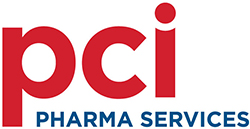Largely resulting from buyer activities such as vendor consolidation and cost aggregation, high performing providers such as PCI Pharma Services are being regarded more as strategic partners than tactical outsourcing vendors. With this change comes a value-based supply model expectation.
Whereas in tactical outsourcing the relationships are very ‘arm’s length’ and transactional in nature (get the order, fill the order), in a true partnership, the two parties work together to achieve mutually beneficial solutions — typically during a much longer supply period.
As an outsourcing partner, there is an inherent requirement to deliver tangible value: that value may involve cost savings or mitigation, but might also include ways to improve product quality and safety, or reduce risk; ways to improve the patient experience; ways to improve the supply chain; or any other facet of the business that improves the overall performance of the client and provides a competitive advantage in the global healthcare market.
Progressive companies have developed scoring systems to evaluate strategic suppliers on this ‘total performance’ metric — providing an evaluation methodology for intangibles such as innovation, risk mitigation, quality, loss/scrap reduction, price and performance, and even facets such as environmental sustainability. The supplier is expected to do more for the relationship than what was expected in a traditional tactical sourcing model, and the benefit to them, in turn, is stable, secure product demand, information sharing and long-term commitment to the relationship.
In a partnership model, not only is this value creation an expectation of the pharmaceutical company for supplier performance, but also provides motivation for the vendor partner because what is good for one party is mutually beneficial to the other — ultimately resulting in shared and successful outcomes for both.

